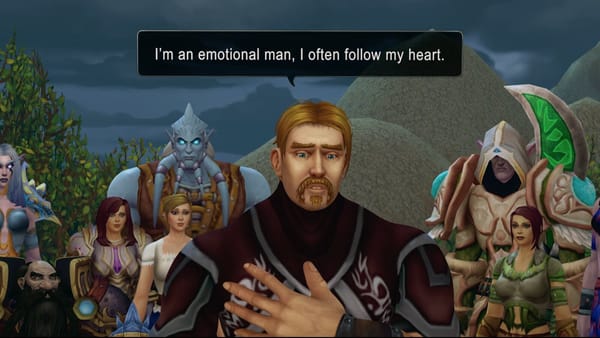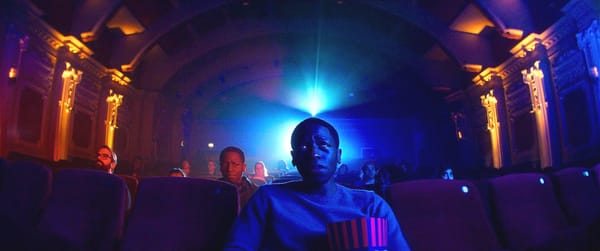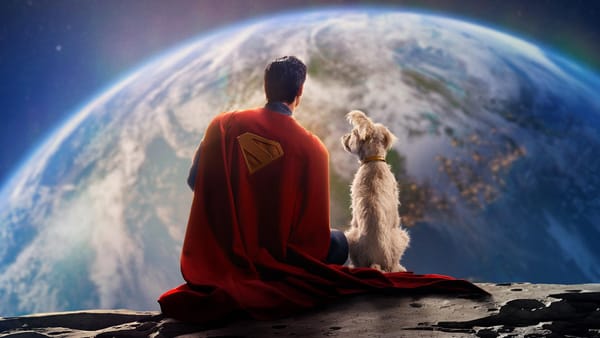The Light Bestowed
Thoughts on the passing of a good man.

The grown-ups of my childhood are dying.
I’m in my mid 60s, which means my generational cohort is also in its mid 60s, which means our parents are in their late 80s and 90s and sliding into history. The towering figures of our childhoods are smaller than us now, slumped into wheelchairs or behind walkers, faded, then fading, then gone. One of my oldest friends lost her dad last year and at the memorial service I saw my graying schoolmates leading their mothers and fathers to the pews, men and women who’d once driven us to practices and birthday parties, cut crusts off our sandwiches, and then busied themselves with the mystery of adulthood. I’m older now than they were then but they have somehow never stopped being the grown-ups.
After the service, we “kids” stood around swapping tales of assisted living and memory loss, everyone in the same boat headed in the same direction and looking at our own adult children a little differently. I stopped to talk with a classmate I’d known since kindergarten as she wheeled her mother to a waiting car, a mother who once had the most witty, sardonic eyes in the after-school pick-up line but who now stared hollowly ahead. “You remember Ty,” her daughter said, and she nodded absently. I heard a few weeks ago that she’s gone now, too, following her husband, who died in 2020 of COVID. The condolence card is on my desk, as yet unwritten. Maybe this is it.
And last week, I heard that Jimmy S. died, which was a good-sized piece of childhood memory falling off the ice shelf into the sea. Most of us know a family growing up that offers a front-row seat at drama, and if you’re lucky or dull it isn’t yours. Jimmy and his wife Adair lived near us in suburban Boston and had five daughters, all with outsized personalities. The oldest, with a bawdy laugh she shared with her mother, was my middle sister’s best, most constant friend and in many ways still is. The second oldest was dark and unhappy, with unexplained disappearances and a corrosive wit that scared me. The third was my classmate and a nettle in my middle-school side for a few years until we became good friends; I initially chalked her up as a Miss Bossypants while sensing that she felt things more keenly than the rest of us. The fourth daughter seemed to look at her family with a perpetually raised eyebrow, as though she’d seen it all done better. There was a fifth, but she was the baby, and I never got a bead on her before moving away in high school.
My own home was a mausoleum in those days. My father had died suddenly when I was nine and my mother was a working single parent who gave us a lot of love while not being able to give us a lot of time. Jimmy and Adair’s house, this fractious house of women, was its opposite – bursting with color, food, arguments, music, laughter, resentments, sorrows, literature, more food, outraged discussions of the Vietnam War and Watergate and women’s rights, sisterly pacts, and betrayals that I, a random neighborhood kid, followed as if it were a daily soap opera. One night there was a mass sleepover in their living room, and I remember lying on the floor in a sleeping bag in the dark, drifting in and out to the first side of “Abbey Road” playing on endless automatic repeat, over and over and over. Halfway through the night, someone got up and put on the second side of CSNY’s “Déjà Vu,” which then played until dawn, over and over and over. I cannot hear either of those albums today without being back in that room. A few years ago I made a playlist of songs from the late Sixties and early Seventies and named it after their street.
This was upper-middle-class suburban New England and, years later, when I saw the film “The Ice Storm,” I gasped in recognition. I’m not saying there were key parties – none that I knew of, at least – but certainly the sense of two generations spinning in separate, unhappy wheels of privilege, spurred by drink or drugs, affairs or emotional struggle. I think it may have been harder for the parents because the rules they’d been raised with suddenly meant nothing. My own generation was used to the nothing.
Jimmy and Adair seemed to occupy separate orbits as well. Let me say, first, that I write this as an absolute outsider to the family, with little knowledge of the realities of what they experienced or what the daughters saw and knew and know. I even had to ask the third daughter, my friend, what her father did for a living before writing this. That’s how much I didn’t know him. (He was a corporate lawyer.) But I knew what he meant to me back then, and it saved my life. Most kids don’t notice other people’s parents unless they’re especially mean or especially kind. Jimmy was kind, and in a way I didn’t understand I needed until much later.
Amid the starchy wives of Chestnut Hill, Adair was the cool mom, the progressive mom, the hippie mom. I saw “The Moosewood Cookbook” and “Our Bodies, Ourselves” at her house before I saw them anywhere else. She was a writer, with dreams of success: The downstairs bathroom off the front hall was wallpapered with New Yorker covers and decorated with framed copies of rejection letters from the magazine – a bark of laughter at failure but a kind of humblebrag, too. Adair was great: Passionate and hearty, a big warm kitchen of a woman. And she saw you, or she tried, which put her one up on a lot of parents.
Jimmy was something different. A son of Old Boston, older than his wife, as reserved as she was exuberant. It didn’t take me long to see that he was shy – a shy grown-up! Imagine! -- with a stammer that got worse when he drank, which was more than he should have. If I’d been older and more versed in high school reading lists, he might have seemed a figure out of Fitzgerald or Salinger, a crestfallen member of the ruling class – a lapsed preppie, a Harvard man who somehow saw himself as coming up short. Instead, I just saw that he was miserable. The marriage would fall apart by the mid-1970s; Jimmy and Adair subsequently married others and stayed married to the end of their lives. Jimmy got sober. The ice storm passed.
I knew him before the divorce, though, when he would come to keep my mother and me company on evenings after my father’s death. Several visits over several months, maybe five, maybe more. He may have been getting away from whatever awaited him at home, but it wasn’t like he wanted anything from my mother other than friendship and a drinking companion with whom to co-miserate. He’d sit at our kitchen table and talk with her and then come upstairs and chat at my bedside, asking about my day, pretending to be interested in what I nattered about. This was more than I ever got from my own dad, a funny, outgoing man whose generation was taught that a father doesn’t really need to talk to his children until they’re adolescents and who screwed himself over by dying before they got there.
Jimmy never tried to be a father figure, and I appreciated that. He may have thought I needed a man to talk to; more likely, my mother thought so. I wonder now if he may have seen in me the confused, uncertain child he may have once been. I’m almost certainly projecting. I do know that he was the one adult who seemed to understand what I was going through without needing to talk a lot about it – I sensed he knew about loss and disappointment and that he knew them firsthand. Sometimes I’d glean a little of his own struggle. Once I remember him quietly weeping, which sounds as though it would be baffling or disturbing to a child, but it wasn’t. It was something else – it was permission. Jimmy was instructive in his vulnerability, and terribly moving. Nothing isolates children from their peers and the world like the death of a parent, but with Jimmy, for the first time in months, I no longer felt alone.
Yes, yes, I felt safe with the man. That was never an issue. We’d talk, maybe sniffle, he’d say good night, go back downstairs, perhaps have one more drink with my mother – my god, could that generation put it away – and then wander back to a suburban home with a wonderful wife, dramatic children, and a life that was somehow all wrong. If John Cheever wrote children’s books, he might have written this one.
I saw him only a few times after that, later in life, when he was turning from old to elderly and surrounded by surviving daughters, endless grandchildren, and incoming great-grandchildren. There was a gala 50th birthday party for my friend the former Miss Bossypants at which everyone was gathered, and Jimmy and I talked briefly and warmly without any acknowledgement of those long-ago evenings. He may not have even remembered them – I would like to think he did – but he seemed as pleased to see me as I was to see him. By then his daughter, having been put through the wringer of her first marriage, was engaged to an old classmate she had reconnected with at my own 50th birthday party; a decade and more on, they’re still engaged and still happy. I take credit only for time and place and serendipity, but if Jimmy had ever wanted to accept that as thanks for his kindnesses, I would have welcomed it.
Adair died in 2006 after having embarked on a late-life career as a chef, her kitchen opening up at last to the world. Her second husband, Charlie, died earlier this month, and so the daughters have in effect lost two fathers. Is that why we seem to spend more time in our childhoods as we grow old and older – to keep them with us? To hold them as they were when they were all we knew? Or is that just a way to ignore the ache in our own bones and the clouding of our eyes? By chance last week I opened a book of verse to read these lines by Carl Dennis, from his poem “At the Graveyard”:
Nothing to give us now or receive, and yet
Here we are with our bright bouquets
As if to say we still remember the light
Lost when they left us and the light
They bestowed upon us that we can’t repay.
We repay the light by telling their stories, wondering what stories our children will someday tell about us.
Thanks for reading. I usually write about movies and popular culture but occasionally about other things that move me, as is the case here. Feel free to leave a comment if you’d like.





